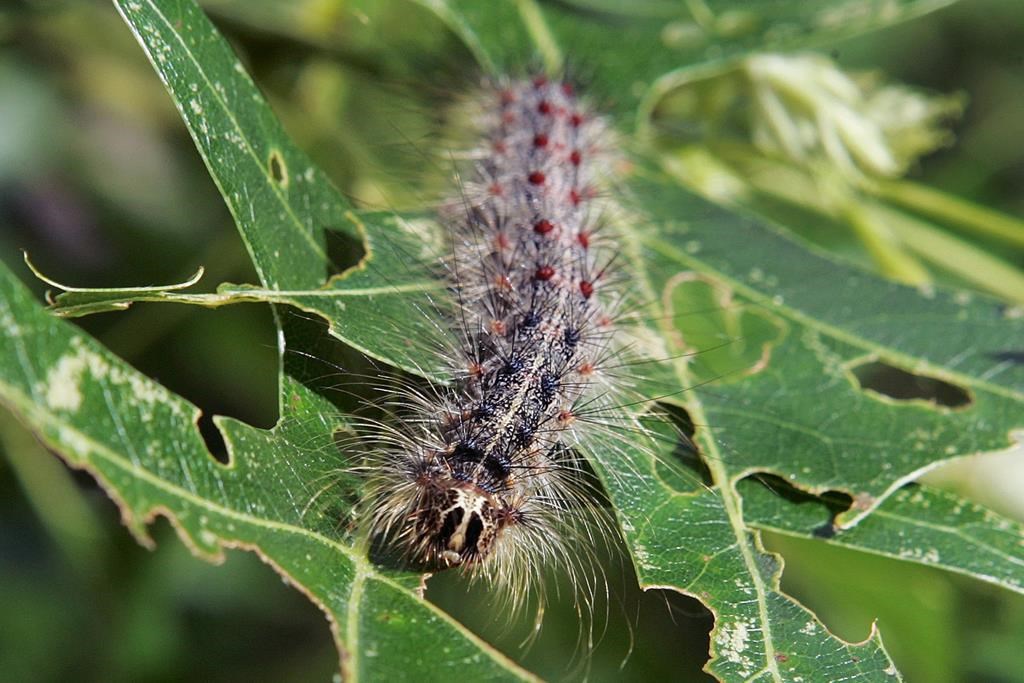Crews in Toronto will begin spraying insecticides to protect the city’s tree canopy from Lymantria dispar dispar (LDD) moths next week.

In a press release issued Friday, the city said the first round of LDD moth aerial spray program will begin next week in “several” wards that are forecast to experience high populations of the moths.
“A second aerial application is set to take place three to 10 days following the first application,” the release reads.
The city said LDD moths are an “invasive, defoliating insect that feeds on a variety of tree species.”
“Eradication of the LDD moth is not possible since it is well established throughout North America,” the release said. “The severe leaf loss created by these insects can make trees weak and susceptible to diseases and weather fluctuations.”
The city said if left untreated, those pressures “can result in the loss of public and private trees.”
According to the city, during the spray program, helicopters will fly between 15 and 30 metres above the tree canopy and will apply “biological, naturally occurring insecticides.”

Get breaking National news
“The products must be applied directly to tree foliage, as LDD moth caterpillars must feed on the treated leaves for the insecticides to be effective,” the city said.
The city said several neighbourhoods will recieve aerial applications of Foray 48B (Btk) made from a naturally occurring bacterium found on dead or decaying matter in soil.
The city said Foray 48B (Btk) will be applied in:
- York Centre
- Don Valley West
- Don Valley East
- Don Valley North
- Willowdale, Beaches-East York
- Scarborough Southwest
- Scarborough Centre
- Scarborough-Agincourt
- Scarborough North
- Scarborough-Guildwood
- Scarborough-Rouge Park
According to the city, BoVir (LdMNPV) will be sprayed in Parkdale-High Park, “specifically over the park.”
The city said BoVir is “highly selective” to LDD moth caterpillars and will be applied to avoid potentially impacting “sensitive non-target moth and butterfly species unique to the park’s habitat.”
The city said spraying will occur between 5 a.m., and 8:30 a.m., and is “weather dependent.”
“As a result, specific spray dates are confirmed 48 hours in advance and can be cancelled if weather conditions change,” the city said.
According to the city, there are no special precautions required for residents who are in the spray zones.
“However, those wishing to avoid exposure can remain indoors during and immediately after the spraying.”
The city said the insecticides used are not toxic to humans, other mammals, birds, adult moths, butterflies, bees and other insects.
The are also approved by Health Canada for urban aerial use, the city said.








Comments